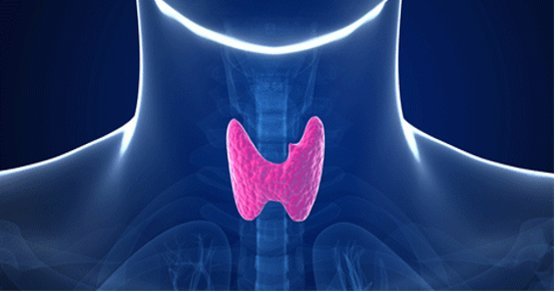Maintaining a healthy thyroid is crucial for overall well-being, as this small but mighty gland plays a significant role in regulating metabolism, energy levels, and numerous bodily functions. Recent studies indicate that approximately 12% of the U.S. population will develop a thyroid condition during their lifetime, highlighting the importance of understanding how diet and lifestyle can support optimal thyroid function.
Understanding the Thyroid Gland
The thyroid gland, located in the neck, is responsible for producing hormones that control metabolism, body temperature, and energy production. Typically, the thyroid produces about 80% T4 and 20% T3 hormones, which are essential for maintaining proper bodily functions. These hormones influence everything from heart rate and body weight to mood and cognitive function.
Key Nutrients for Thyroid Health
Iodine: The Thyroid’s Essential Mineral
Iodine is critical for thyroid hormone production. Iodine deficiency is a global health concern, with experts noting it as the leading cause of preventable intellectual disability worldwide. To ensure adequate iodine intake, consider incorporating these foods into your diet:
- Seaweed and sea vegetables
- Iodized salt
- Seafood and fish
- Dairy products
Selenium: A Powerful Thyroid Supporter
Selenium plays a crucial role in thyroid hormone production and metabolism. Interestingly, eating just one or two Brazil nuts per day can provide the recommended daily intake of selenium. Other excellent selenium sources include:
- Fish (tuna, halibut)
- Eggs
- Poultry
- Whole grains
Omega-3 Fatty Acids: Reducing Inflammation
Omega-3 fatty acids are powerful allies in supporting thyroid health. Studies suggest these essential nutrients can reduce inflammation by up to 30%, which is particularly beneficial for individuals with autoimmune thyroid conditions. Top sources include:
- Fatty fish (salmon, sardines)
- Flaxseeds
- Walnuts
- Chia seeds
Additional Thyroid-Supporting Foods
Beyond specific nutrients, several foods can contribute to overall thyroid health:
- Leafy Greens: Spinach, kale, and Brussels sprouts provide essential vitamins and minerals
- Bone Broth: Rich in calcium, magnesium, and phosphorus
- Probiotic Foods: Yogurt, kefir, and sauerkraut support gut health, which is closely linked to thyroid function
Habits That Support Thyroid Function
Diet is just one aspect of maintaining a healthy thyroid. Consider these lifestyle practices:
- Regular exercise (can improve thyroid function by up to 20%)
- Stress management techniques like meditation and yoga
- Prioritizing quality sleep
- Limiting exposure to environmental toxins
Foods to Approach with Caution
Some foods can potentially interfere with thyroid function if consumed in excess. Raw cruciferous vegetables, for instance, contain goitrogens that can block iodine absorption. While these foods are nutritious, it’s recommended to cook them to reduce their potential negative impact.
A Holistic Approach to Thyroid Health
Supporting thyroid function isn’t about a single magic food or supplement, but rather a comprehensive approach to nutrition and lifestyle. By incorporating a variety of nutrient-rich foods, managing stress, staying active, and getting adequate rest, you can support your thyroid’s optimal performance.
Always consult with a healthcare professional before making significant changes to your diet, especially if you have existing thyroid conditions. Each individual’s nutritional needs are unique, and personalized guidance can help you develop the most effective strategy for maintaining thyroid health.





